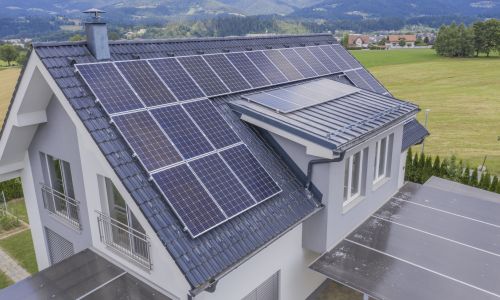The European Union has decided to revise its building directives to address environmental challenges. According to the EU Council, buildings are responsible for about a third of the Union’s greenhouse gas emissions. In response, the new regulations aim to increase the energy efficiency of buildings and reduce their environmental impact.
Phased introduction of photovoltaics
The new regulations include a phased introduction of mandatory installation of photovoltaic panels:
- from 2027: on new non-residential and public buildings over 250 m².
- from 2028: on existing non-residential and public buildings over 2,000 m² and over 500 m² with significant administrative changes.
- from 2029: on existing non-residential and public buildings over 750 m².
- from 2030: on all new residential buildings and covered parking lots.
- from 2031: on existing public buildings above 250 m².
Photovoltaic installation will be required as long as it is technically, economically and functionally justified. The regulations also provide for exceptions, such as historic buildings, places of worship or buildings with an area of less than 50 m².
Zero-carbon plan by 2030
All new buildings owned by public bodies are to be zero-emission by 2028. By 2030, the rule is to extend to all newly constructed buildings within the Union.
The European Union also plans to gradually reduce the use of gas stoves. Starting in 2028-2030, fossil fuel stoves will not be allowed in new buildings. By 2035 or 2040, this restriction will be extended to existing facilities as well.
Balancing the green transition
The European Commission’s deputy head of the European Green Deal, Maroš Šefčovič, stresses the importance of the green transition. The goal is to ensure that the changes benefit citizens by improving the energy efficiency of buildings, lowering energy bills and reducing greenhouse gas emissions.
EU’s next steps
The completion of the discussions on the Buildings Directive between the European Parliament and the EU Council will now be approved by both EU bodies. This is a historic step toward a more sustainable future for the European Union.
source: światoze.pl





